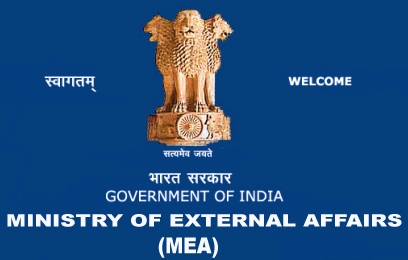India’s global stature was on the ascent in 2015, with the last twelve months witnessing the country’s robust engagement in the world’s leading multilateral fora, including UNGA, G20, BRICS, SCO, ASEAN and EAS.
 India’s Relation With Multilateral Organisations in 2015
India’s Relation With Multilateral Organisations in 2015
Following is the summary of its relations in the year 2015 with following organisations:
UNGA
The 70th session of the UNGA was special in many ways as we joined in the 70th anniversary celebrations of the world body and robustly backed the adoption of the Sustainable Development Goals (SDGs) at the SDG summit.
Supporting the adoption of Agenda 2030, PM Modi outlined steps taken by India in reducing poverty and proactively joining the world in promoting green development.
Fast-tracking reform and expansion of the UNSC was the cross-cutting theme of PM Modi’s address at different events related to the UNGA, including the summit of leaders of G4 countries.
Sustainable development, promotion of renewable energy and climate justice were other refrains in PM’s interventions.
In a separate address to the UN Peacekeeping Summit on September 28 in New York, PM Modi pitched for a greater role for troop-contributing countries in the decision-making process related to peacekeeping operations and unveiled new contributions by India.
These include, among other things, additional battalions of up to 850 troops in existing or new operations, additional three Police units with higher representation of female peacekeepers, and additional training for peacekeepers at facilities in India and in the field.
Making an eloquent case for making the UNSC more credible and representative by including aspiring members, to address the challenges of the 21st century, EAM’s address at the UN also underlined the need for achieving the Security Council reform “within a fixed time frame.”
BRICS
The BRICS summit in July saw the operationalisation of two key India-backed initiatives, including the New Development Bank (NDB) and $100 billion Contingent Reserve Agreement (CRA), which reinforced the collective BRICS commitment to reconfiguring the global financial architecture.
The NDB, with an initial start-up capital of $50 billion, and a veteran Indian banker as its first President, is expected to approve its inaugural investment project in 2016, and is a game-changer in bolstering infrastructure development in the global South.
PM Modi made a robust pitch for fast-tracking IMF quota reforms to enable a larger say for developing and emerging economies in top global financial institutions of governance, imparting a push to the ongoing project of recasting the global financial system.
India also backed the intra-BRICS strategic economic partnership which will upscale trade and investment among emerging economies, and positioned them as the future hub of economic growth.
India made valuable contributions by making a compelling case for enhancing civil society interaction among BRICS countries as PM Modi unveiled 10 proposals for bolstering the BRICS, which includes, among others, the holding of an annual BRICS trade fair, the setting up of a Railway Research Centre, cooperation among supreme audit institutions, a BRICS digital initiative, the BRICS Agricultural Research Centre, a BRICS Sports Council, and an annual BRICS Sports Meet.
PM Modi also forcefully advocated urgent reform and expansion of the UNSC, with a permanent seat for India in the reformed body.
SCO
India’s elevation from an observer to a full-member at the SCO summit in Ufa on July 10 was a milestone that will provide more ballast to its Connect Central Asia policy and promote an integrated and connected Eurasia to become one the most dynamic regions in the world.
India offered support for buttressing physical and digital connectivity and backed the International North South Transport Corridor. India also focused on enhancing security cooperation to combat terrorism and the SCO’s key role in stabilisation process in Afghanistan.
G20
The Prime Minister’s participation in the G20 summit in Turkey was marked by important contributions to shape the G20 agenda for restoring global economic growth and creating an inclusive global financial architecture.
India backed the G20’s outcome on developing ambitious country-specific investment strategies, and its proposals for alternative financing structures, such as asset-based financing, and simple and transparent securitization.
The PM underlined that his government has zero tolerance for both corruption and black money.
In the aftermath of the Paris terror attacks, PM also laid out a 10 point plan to combat terrorism, underscoring the need to deepen cooperation against terrorism financing, including through targeted financial sanctions and more effective counter-terrorism financing tools, while calling for countries to join hands to isolate states that support and sponsor terrorism.
COP21
At COP 21 in Paris, India played a key role in the final Agreement ensuring that its own concerns, as well as those of other developing countries, were suitably addressed.
The Agreement recognized the principle of Common but Differentiated Responsibilities, expanding the term to include ‘in the light of different national circumstances.’
It has also specific provisions on climate finance and mitigation actions that indicate developed country obligations, although much work remains to be done.
Speaking at the Plenary, PM expounded on India’s ambitious INDCs which include reducing emissions intensity per unit GDP by 33-35% per cent of 2005 levels by 2030, and ensuring that 40 % of our installed capacity for electricity would be from non- fossil fuels.
PM underlined the needs of the developing world, of lifting billions of people into prosperity, which would require advanced countries leaving enough carbon space – the need for climate justice. The PM also launched the International Solar Alliance, co-chaired by India and France, to promote greater use of solar energy.
All countries lying between the Tropics of Cancer and Capricorn are eligible to be members of the ISA. India would be hosting the initiative in the National Institute of Solar Energy and announced US $30 million for the secretariat infrastructure.

